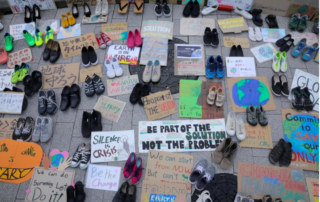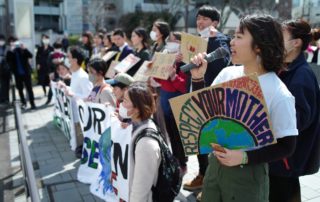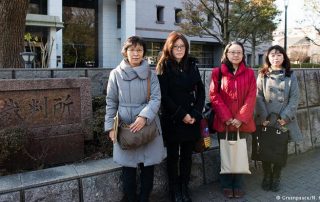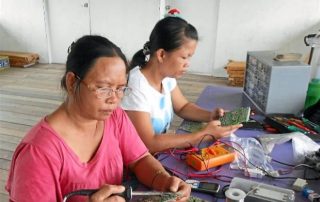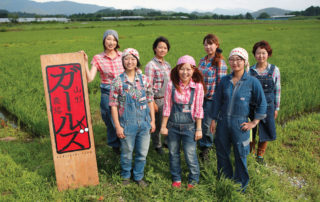Japanese Youth Demand Action On Global Warming In ‘Shoe Protest’ Outside Diet
Youth activists in Japan hold a COVID-19 safe climate protest as part of the Global Day of Climate Action displaying over 100 pairs of shoes outside the National Diet Building in Tokyo. In lieu of holding a street march, Mutsumi Kurobe and other young climate activists stress that the Japanese government must do more to take bold action on climate even and especially during the coronavirus pandemic. Over 30 partner actions were held by youth organizers across the country, many of which were led by local Fridays for Future chapters in alliance with the global student strike movement. Photo credit: Mainichi/Yuki Miyatake


